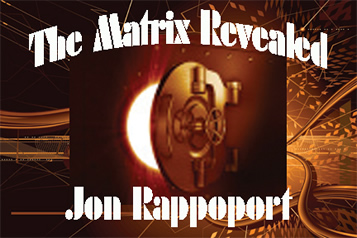by Jon Rappoport
October 17, 2010
(To join our email list, click here.)
I’m listening to music I encountered many years ago. Bob Graettinger’s CITY OF GLASS. It’s a four-part composition recorded with Stan Kenton’s orchestra in 1951.
(CITY OF GLASS, Capitol Jazz, 7243 8 32084 2 5)
Graettinger (1923-1957) was obviously no stranger to the innovations of Stravinsky and Charles Ives, but he invented his own roads of multi-layered, dense sounds—“energy moving through space,” as he once put it.
CITY OF GLASS is what I’d call a proliferating work. It keeps traveling and expanding and adding new elements. It’s not an attempt to reduce or distill or repeat or restate or recapitulate a concept. It’s not variations on a theme. It moves forward relentlessly. Add to that the fact that the music has no tonal center, no steady tempo, and showers the listener with combinations of dense dissonances, and you have a work that has no easy approach to it. You can’t just hear it. You have to listen to it. You have to search it.
Music is certainly a non-verbal language, but CITY OF GLASS is non-verbal to the power of a hundred. It explodes with meaning on every front for every second of its time on the stage, and yet there is no real way to depict it.
Every time I listen to it, the meanings change, but there is always titanic impact.
The only thing this music needs is dedicated listeners.
Which leads me to the point of this piece:
If a new language is spoken and no one listens to it, is it real?
On one level, the answer is obviously yes. On another level, radical revolutionary language—which could change our perception of reality—goes nowhere if people refuse to accept it and find meaning in it.
All around us, in art, we have the seeds, branches, and fruit of other languages that do not conform to the standards of what a conventional language is. If we keep turning a deaf ear to them, we stay exactly where we are. The future is postponed.
We don’t need some reductionist language that would allow us all to communicate with each other all over the world, but at the same time cuts out the far reaches of imagination.
We need proliferation along every possible creative front.
Imagine this: In two chairs across from each other sit Graettinger and Stravinsky. G beams 60 seconds of music at the old master, and S beams back his own music. Back and forth they go, for several hours. In other words, they’re “speaking.”
The audience, and perhaps even G and S at first, consider that this exchange is lunacy—but as time passes, G and S and the audience begin to catch on to something. Even though there is absolutely no assigned meaning or significance attached to any of the transmitted sounds, language is occurring. Meanings are being transferred. These meanings aren’t permanent. They change, moment to moment, but the impact of each moment is vivid and undeniable.
The audience, against its better judgment, develops a confidence and sensation and feeling and, yes, knowledge about this language. The knowledge is spontaneous and powerful. It doesn’t leave clear tracks in the snow. It is overtaken by the next moment of knowledge.
The future has arrived.
Human beings realize they are emerging into a new day that has no precedent. There is no set and smug tradition to fall back on. There is no “education” taking place. This language is a multi-front wave that awakens imagination in new and towering ways.
And having pulled that trigger, reality is different. It’s newer. It’s larger. It’s greater. It’s more flexible. It’s enlightening in every important sense of the word. It’s more thrilling than the hidden chests of King Solomon’s treasure in a remote cave.
(To read about Jon’s mega-collection, The Matrix Revealed, click here.)
Jon Rappoport
The author of three explosive collections, THE MATRIX REVEALED, EXIT FROM THE MATRIX, and POWER OUTSIDE THE MATRIX, Jon was a candidate for a US Congressional seat in the 29th District of California. He maintains a consulting practice for private clients, the purpose of which is the expansion of personal creative power. Nominated for a Pulitzer Prize, he has worked as an investigative reporter for 30 years, writing articles on politics, medicine, and health for CBS Healthwatch, LA Weekly, Spin Magazine, Stern, and other newspapers and magazines in the US and Europe. Jon has delivered lectures and seminars on global politics, health, logic, and creative power to audiences around the world. You can sign up for his free NoMoreFakeNews emails here or his free OutsideTheRealityMachine emails here.
